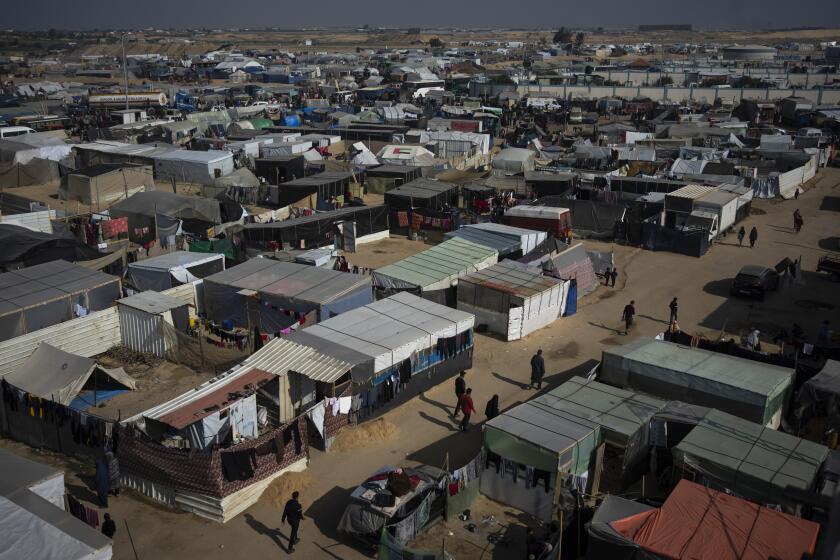Thai Officials Blame Fall in Tourism on U.S. Warning About Pro-Iraq Terrorism
Far from the fighting in the Persian Gulf, this Southeast Asian nation considers itself a casualty of war.
The problem is tourism, a $4-billion industry that is Thailand’s major source of foreign exchange. In what is usually peak season, tourist arrivals are down by a third, package tours and business meetings have virtually disappeared, and usually packed beach resorts are closing rooms and laying off staff.
The Thais bitterly blame friendly fire: a U.S. Embassy security alert issued Jan. 19 that warned of a “credible threat” of terrorism against U.S., British, Australian and Israeli installations, airlines and “places where foreigners congregate.” The warning has been extended indefinitely.
Although no terrorist attack has yet occurred here, similar warnings also were issued by the British, Australian, French and Japanese embassies.
“A Scud missile couldn’t have done us more damage,” complains David Wiig, vice president of the Thai Hotels Assn. “Business absolutely just disappeared overnight.”
Thai government officials agreed. They denounced the U.S. warning, which was distributed to visitors arriving at Don Muang Airport. And the Bangkok Post issued its own mock warning on the front page, saying Thais visiting New York should watch for “roaming bands of armed criminals.”
“Tourism in our country has been affected the most by the U.S. warning that Thailand is a potential terrorist target,” said Dharmnoon Prachaubmoh, head of the Tourist Authority of Thailand. “The war itself doesn’t affect us that much.”
The terrorist threat affected many, however. Bangkok’s three international schools closed for two weeks for fear of attack. Churches canceled services; McDonald’s and Pizza Hut outlets lost business.
Guards at British Airways and other international air carriers began frisking customers in downtown offices. Thai combat troops and police continue to patrol the U.S. Embassy and other facilities.
And the business travelers and tourists are going elsewhere.
“We moved our sales meeting to Singapore,” said a Bangkok-based American businessman, who asked not to be identified. “The risk wasn’t worth it.”
After Thai military commander Gen. Sunthorn Kongsompong initially confirmed that “many” Middle East terrorists were believed operating in Thailand, the army ordered senior officers to avoid commenting to reporters. Directions also went out to refrain from reporting Thai terrorism stories on army-run radio and television.
In the same spirit, Prime Minister Chatchai Choonhavan last week ordered other Thai TV stations to curtail Gulf War coverage to one hour at noon and a half hour at night.
A government spokesman said Chatchai was afraid the public would get “fed up” and “depressed” by nonstop Gulf coverage. The spokesman, though, said the restrictions may be lifted if the news requires it.
As for the tourism warnings, U.S. and other Western officials defend the advisories, arguing that the increased security at embassies and the deportation of at least six Iraqi diplomats and four suspected Arab terrorists may have helped prevent a terrorist attack.
The initial U.S. warning came after an informant said that he had been recruited by the Iraqi Embassy here for terrorist activity and that arms and explosives had been distributed from the embassy to an unknown number of potential terrorists.
“The professional view here is the credible threat is still out there,” said one Western diplomat. “That means we’re going to have to hunker down for a long, long time.”
Still, more than one Thai has noted the nearly nonstop stream of terrorist bombings almost everywhere in the world except in Thailand since the war began.
At the Variety International travel agency, director Kanokthip Wongummart says three Thai businessmen were planning to fly to London until they heard of the mortar-bomb attack Thursday on No. 10 Downing St.
“Now they’ve postponed the trip,” she said with a laugh. “They said Bangkok is much safer.”
More to Read
Sign up for Essential California
The most important California stories and recommendations in your inbox every morning.
You may occasionally receive promotional content from the Los Angeles Times.







